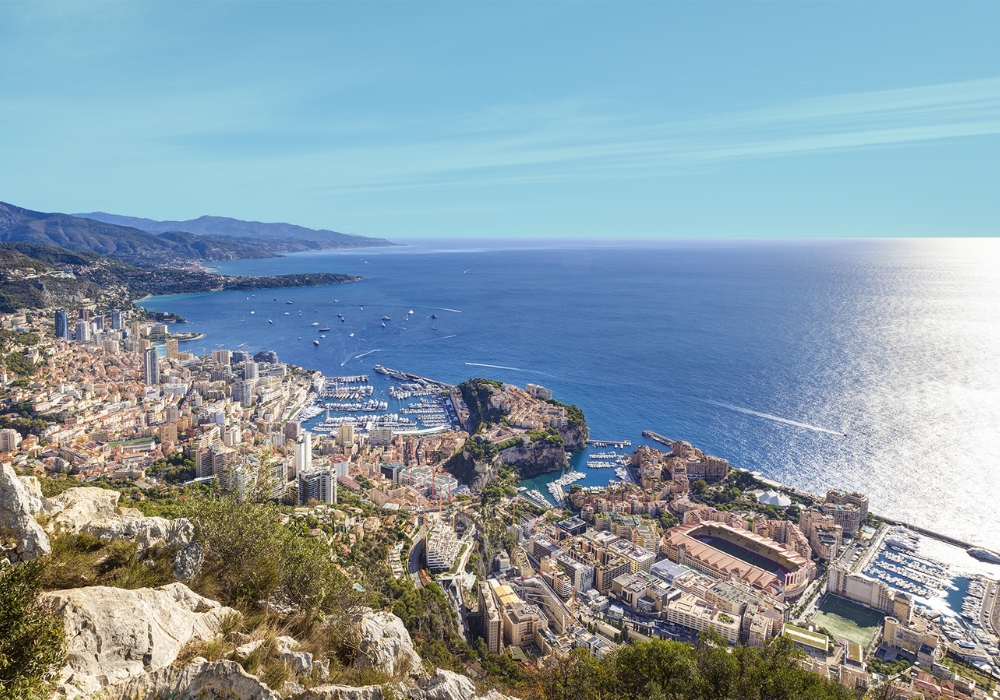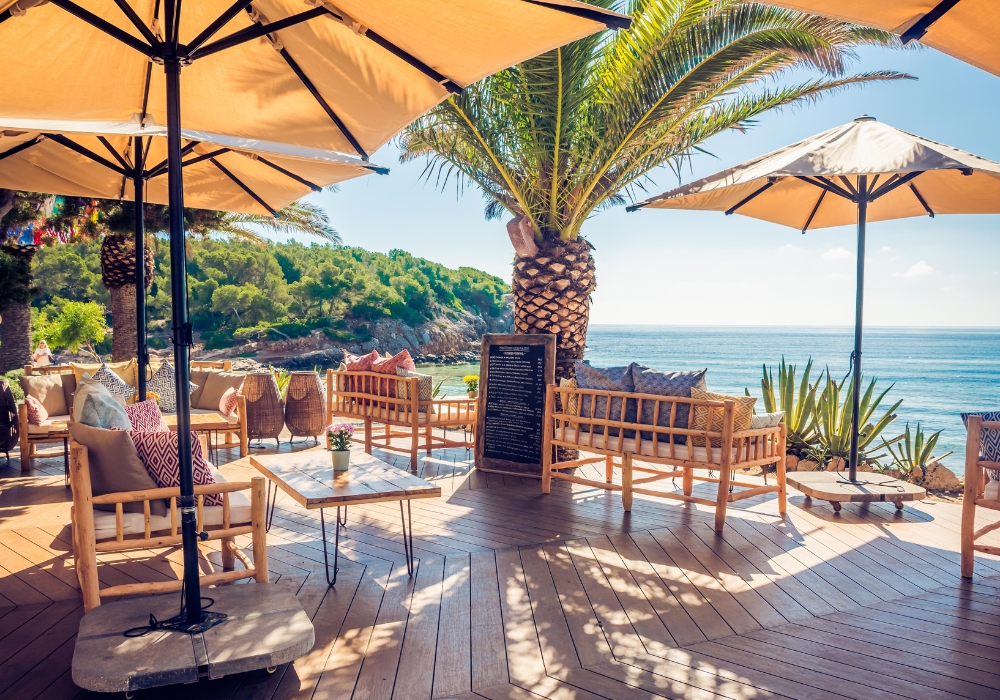The Direction of Travel
Luxury Travel Lifestyle PR
Juliet Kinsman shares stories of sustainability from luxury travel — here are six trends most impressing the journalist, podcaster and consultant
It’s heartening how much we’ve advanced when it comes to talking about sustainability in recent times — at last, it’s a topic to have hit the mainstream. But, when it comes to the climate emergency, if you listen to the many scientists who make up the IPCC — the UN’s Intergovernmental Panel on Climate Change — we have to do much more, and move a lot faster, if we’re to tackle the causes and symptoms of the extreme weather patterns affecting the whole world.
It’s not breaking news that we need to transition faster to green energy, combat carbon emissions, measure and reduce our water use, and strive for better social justice — but these are some strategies helping tourism do better for the planet and its population of eight billion people.
Carbon labelling
Transparency around carbon emissions, their measurement and mitigation is what’s needed most in the journey to reduce planet-warming greenhouse gases. Praise be to the operators and agents now labelling their trips so we can make better-informed decisions by declaring their carbon ‘calories’.
Responsible Travel, the activism-minded trailblazers in greener getaways, have always specialised in low-carbon escapes. Now they’ve launched a carbon-labelled collection. Intrepid Travel, the world’s largest B Corp-certified travel company, has also added carbon labelling to hundreds of itineraries, representing the emissions of that trip in a ‘nutrition label’ style format. They’re also aiming for real-time carbon footprint tracking where the support of AI will let their clients log their daily emissions and travel metrics while they’re on the move.

Flight-free planners, Byway’s carbon prices include the carbon cost of all transport and accommodation and show a comparison with the carbon emissions of flight-based travel over a similar distance. The more operators publish their emissions data – just like having calories displayed on menus – raises the bar for our industry to take more responsibility and helps travellers make ‘healthier’ purchasing decisions.
Conscious consumers
Behavioural change is happening, but is the increase in conscious consumers converting into improved purchase decisions? While some of the biggest levers for change must be pulled by government and big business, there are encouraging signs of bottom-up behavioural change.
Booking.com recently released a trend report backing this up, based on research among more than 27,000 travellers across 33 countries and territories. It revealed that 56 per cent of UK travellers are turning their air-conditioning off at accommodation when they go out, up 33 per cent from reports for 2022. Meanwhile, a whopping 70 per cent of UK guests prefer to keep using their towels, which is also up 36 per cent year on year.
We could be doing even better by filling our water bottles rather than buying bottled. Booking.com’s most recent research says travellers taking their refillable bottles is up 22 per cent since 2022, with 54 per cent of Brits taking theirs on holidays — but that’s still almost half of us who could be changing our ways to avoid waste from what we drink when we’re on the move.
What we still need to pay attention to, though, is the ‘say-do gap’. That’s the chasm between intention and action. Most surveys and reports tell us travellers are keen to travel more sustainably — 64 per cent, in the case of Booking.com. But anecdotally, speak to many travel agents and they’ll tell you that price is still the key driver, often since sustainability is perceived as more expensive. Which means we need to be selling greener options as standard.
Off-season travel
We’re increasingly switched on to the environmental and economic benefits of heading off-the-beaten track. Of course, redistributing tourism from the most popular places at peak times to under-the-radar alternatives outside rush hour isn’t a new concept to ethical tourism. It’s seriously helpful to the environment to have less mass tourism traffic and a great way to see fairer wealth distribution.
So it’s great that we’re seeing a rise in seeking out less obvious destinations to give those dollars to. The added benefit in these cost-conscious times is that they can also mean better value for money for consumers.
A great example? We’ve seen Albania being mooted as the new Maldives a lot over the last year. Far-fetched or sensible from a sustainability perspective? Southern Albania’s so-called Riviera, on the Ionian Sea, has show-stopping blue waters and sandy beaches. Currently, only 20 per cent of GDP comes from tourism. This lesser-celebrated Balkan coastline may give Croatia a run for its money, but the challenge is still that some of the best-loved high-end package holiday providers don’t supply comparable escapes as yet. It may not hit quite the upscale over-water villa notes of the Indian Ocean’s iconic escapes, but Regent Holidays offers great-value South Albania itineraries.
Plastic Zero heroes
Mitigating microplastics is a priority for the wellbeing of marine life — and all our health. The European Commission aims to cut plastic pellet pollution by 74 per cent by the end of the decade, getting this started with an outright glitter ban. A United Nations treaty will cap production and mandate reporting, hopefully resulting in a step change in plastic footprints in the same way the Paris Agreement set benchmarks for carbon.

I’ve seen more and more consultancies supporting hospitality businesses in measuring plastic emissions and implementing reduction strategies. Common Seas is a not-for-profit enterprise that uses a combination of tools and technical expertise to gather data, calculate use and set reduction goals. Plastic Free Certification is a new body that has certified Moët & Chandon, One&Only and Relais & Châteaux. When you see Mandarin Oriental declaring itself 99.9 per cent plastic free, it sends an important signal to the industry but we need action from each direction: consumers lobbying hosts and being prepared to give up single-use, and we need policy implementation at government and corporate level.
Wastewater wizardry
We should be seriously worried that less than three per cent of the world’s water is freshwater. This is a ticking timebomb that’s often un-shouted about. Praise be, then, for the properties modelling innovative water-waste management. It may not be the sexiest luxury-hotel topic, but when you know the severe strain from agriculture and food production on our rivers, lakes and wetlands, it makes you want everyone to sit up and listen to the likes of Emboo River Camp in Kenya.

Here on the Emboo River in the heart of Kenya’s Maasai Mara, they are using indigenous vegetation to treat all their wastewater. Floating plants in their wetlands means that the leaves above water level absorb carbon, while the roots filter wastewater, which in turn is vital to allow for more clean water available for the Maasai community.
Nature-positive water-filtration solutions should be a priority. In Asia, Zhiwa Ling was the first in Bhutan to filter grey- and black-water waste with a Membrane Bioreactor (MBR). More properties going with the flow in this way, would be a future-friendly system of treating sewage with circular efficiency around this precious resource.
Sustainability-certified countries
Now that sustainability has officially hit the mainstream, there’s a race for tourist boards to make the most impressive sustainability certification declarations. We’re seeing a huge increase in tourist boards committing to credible frameworks. Fiji recently became the first nation to join the Leading Destinations of the World programme from EarthCheck. Singapore was declared the first country to meet the Global Sustainable Tourism Council (GSTC) Destination Criteria in spring 2023 after Turkey declared its National Sustainable Tourism Program with the GSTC last year. As of this autumn, more than 6,150 facilities, mainly in the Antalya, İstanbul and Muğla provinces, had received the thumbs-up for their sustainability practices. Scaling strategic tourism management solutions at a national level is not to be sniffed at: here’s to more countries taking responsibility for a greater percentage of their wider supply chains.
In truth, there are hundreds of certification schemes just in the travel space, and most of these programmes are pay-to-play — but if municipalities and investors are putting their money where their green talk is, it results in better navigation to the greener hosts.
Juliet Kinsman is the sustainability editor of Condé Nast Traveller and the driving force behind The Standard’s new sustainable-travel channel and co-host of The Standard’s six-part Sustainable Travel podcast series. Her purpose-led non-profit consultancy Bouteco has produced the climate podcast series Funny Old World. Her most recent book, The Bucket List: Eco Experiences, is published by Rizzoli. Follow Juliet on Instagram @JulietKinsman.
Luxury Travel and Lifestyle PR
Continue reading
Checking In With… Gwendal Poullennec
Luxury Travel Lifestyle PR Luxury Travel Lifestyle PR

